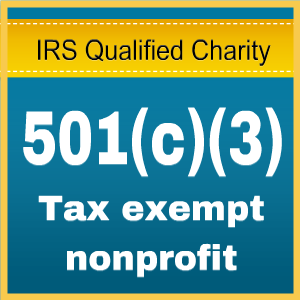501 (c)(3) Federal tax law provides tax benefits to nonprofit organizations recognized as exempt from federal income tax under section 501(c)(3) of the Internal Revenue Code (IRC).
It requires that most tax-exempt organizations must comply with federal tax law to maintain that status and avoid penalties.
Why keep records?
In general, an organization must keep books and records to show that it complies with tax rules.
The organization must be able to document the sources of receipts and expenditures reported on Form 990, Return of Organization Exempt From Income Tax.
If an organization does not keep required records, it may be unable to show that it qualifies for exemption. Thus, the organization may lose its tax-exempt status.
In addition, an organization may be unable to complete its returns accurately and may be subject to penalties. A good recordkeeping system will also enable an organization to monitor the progress of programs and aid in the preparation of financial statements and returns.
Monitor Programs
Records can show whether programs are improving, which programs are successful, and what changes an organization may need to make. Good records management may be a contributing factor to the success of a program.
Prepare Financial Statements
It is important to maintain revenue and expense statements and balance sheets to prepare accurate financial statements. These statements can help an organization when working with banks, creditors, and contributors and funding organizations.
Prepare Annual Returns and Tax Returns
Records must support income, expenses, and credits reported on Form 990 series and other tax returns. Generally, these are the same records used to monitor programs and prepare financial statements.
Also, books and records of exempt organizations must be available for inspection by the IRS. If the IRS examines an organization’s returns, the organization may be asked to explain items reported. A complete set of records will speed up the examination.
Identify Sources of Receipts
Organizations may receive money or property from many sources. Records can identify the sources of receipts. Organizations need this information to separate program from non-program receipts, taxable from non-taxable income, and to complete Schedule A of Form 990 noted in section What federal tax reports and returns must be filed? Organizations that check box 10, 11, or 12, Part IV, of Schedule A, must keep records that show how much support they receive from specific contributors.
Record Deductible Expenses for UBIT Purposes
An organization may overlook deductible expenses when it prepares its unrelated business income tax (UBIT) return (Form 990-T, Exempt Organization Income Tax Return) unless it records the expenses when they occur.
What records should be kept?
Except in a few cases, the law does not require a special kind of record. An organization can choose any recordkeeping system, suited to its activities, that clearly shows the organization’s income and expenses. The type of activities an organization conducts affects the type of records necessary to keep for federal tax purposes. An organization should set up a recordkeeping system using an accounting method that clearly shows its income for the tax year.
If an organization has more than one program, the organization should keep a complete and separate set of records for each program. A recordkeeping system should generally include a summary of transactions. This summary is ordinarily written in an organization’s books (for example, accounting journals and ledgers). The books must show gross receipts and functional expenses, as well as deductions and credits. For most small organizations, the checkbook is the main source for entries in the books. In addition, an organization must keep documentation that supports entries in the books.
Supporting Documents
Organization transactions such as contributions, purchases, sales, and payroll will generate supporting documents. These documents — grant applications and awards, sales slips, paid bills, invoices, receipts, deposit slips, and canceled checks — contain information to be recorded in accounting records. It is important to keep these documents because they support the entries in books and the entries on tax and information returns. Organizations should keep them in an orderly fashion and in a safe place. For instance, organize them by year and type of receipt or expense.
Source: IRS Compliance Guide for 501(c)(3)-Publication 4221
Learn more:
A global media for the latest news, entertainment, music fashion, and more.





